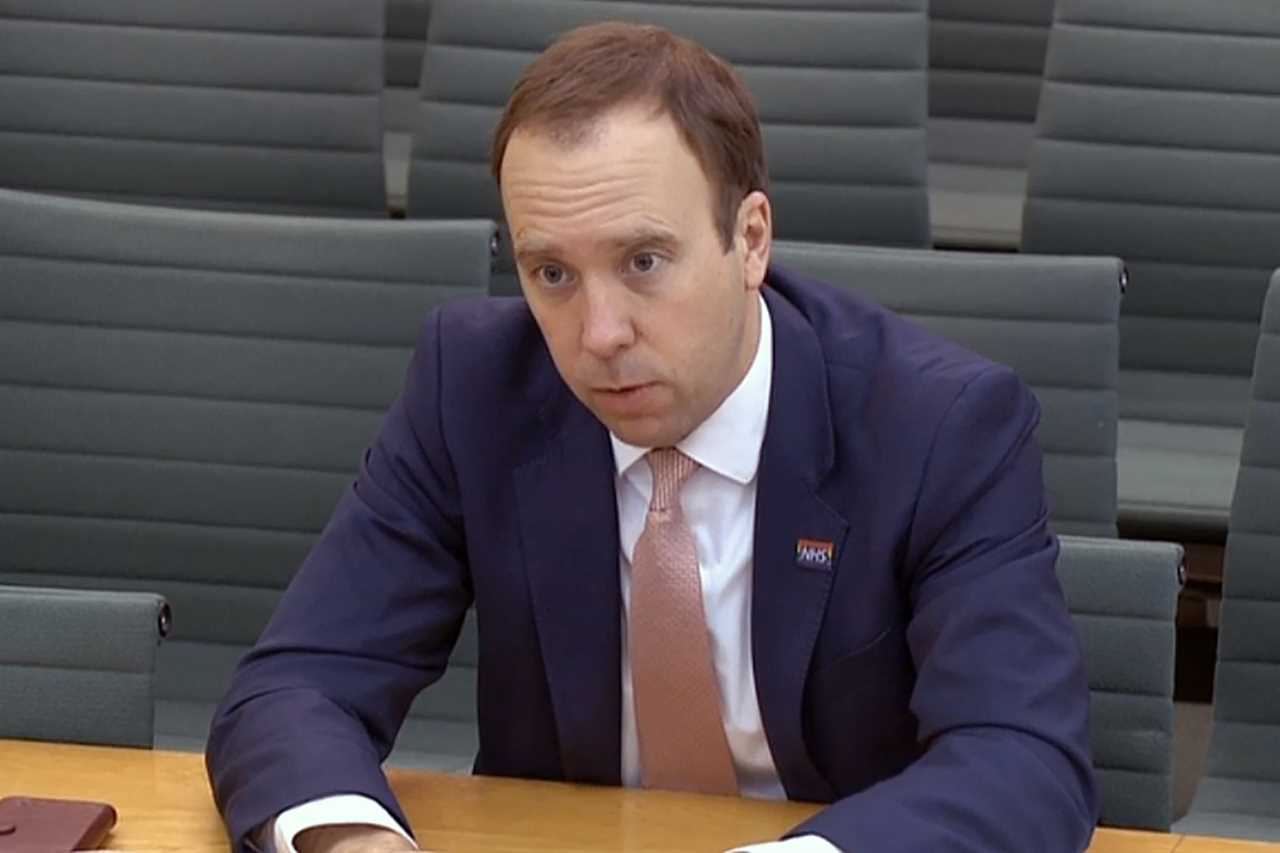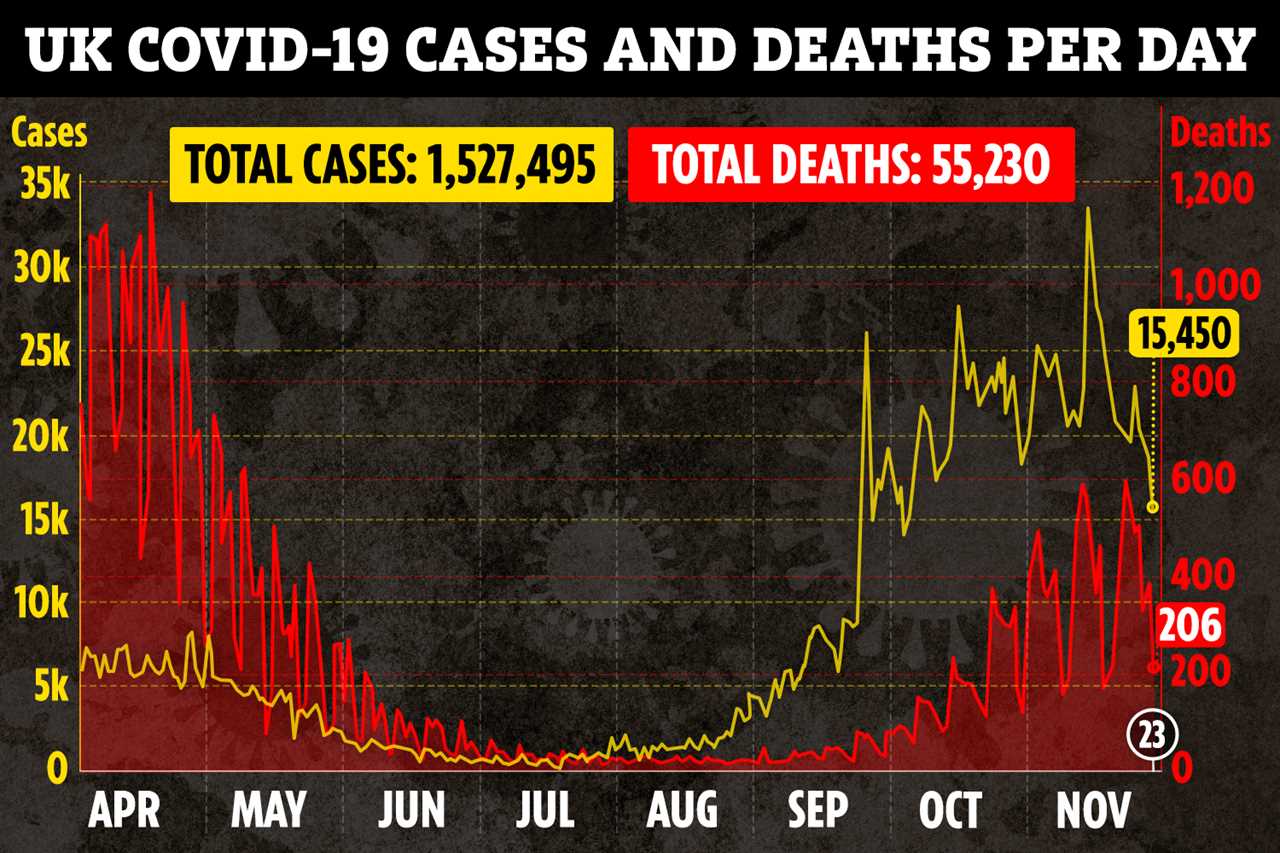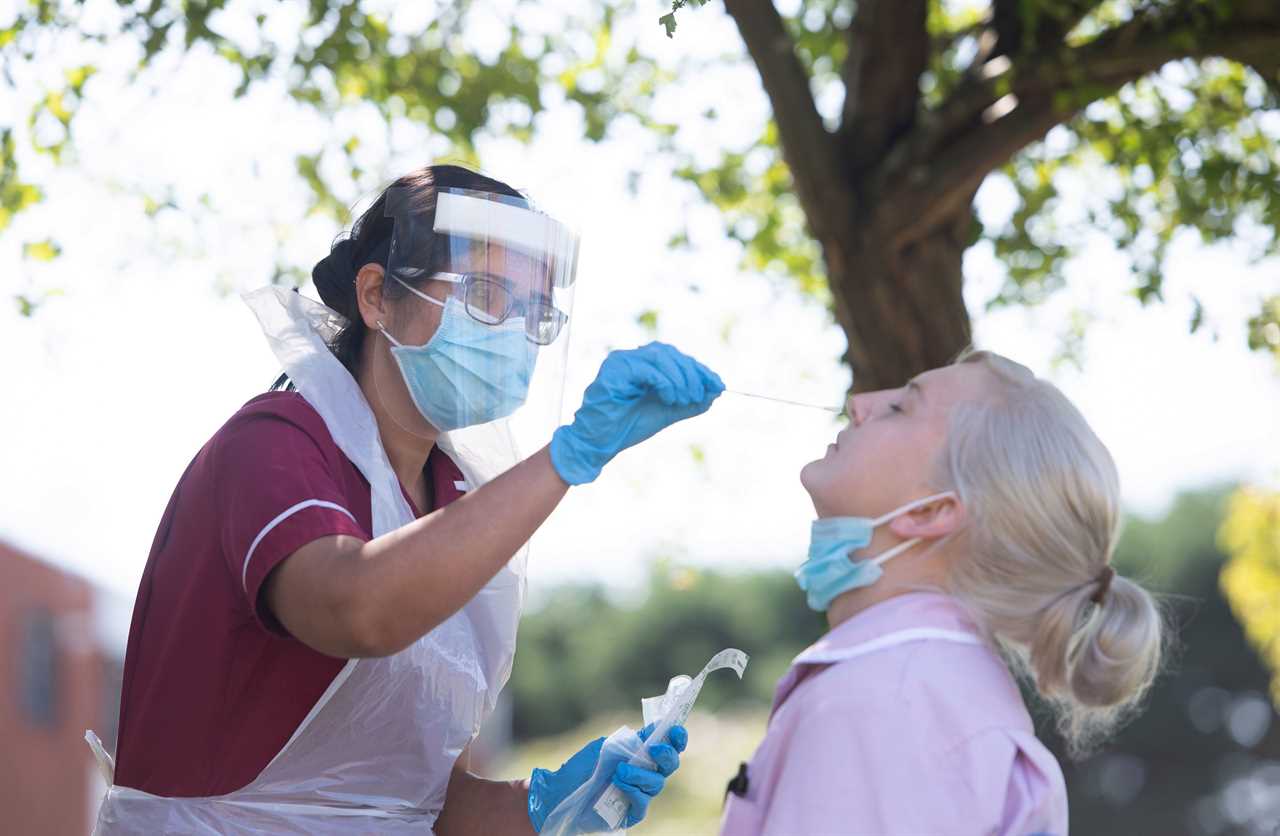BRITS should take more sick days in the future and “shouldn’t soldier on and go to work”, Matt Hancock has claimed.
The Health Secretary said he wants to “see a change” in the way British people do things, including making testing a priority with any illness – not just Covid-19.

He said the “British mentality” of soldiering on when you’re unwell “needed to change” and encouraged people to stay off work if they were feeling unwell – coronavirus related or otherwise.
Speaking at the Health and Social Care Committee and Science and Technology Committee this morning, Mr Hancock hailed the testing capacity built up by the NHS.
He said a key lesson from the coronavirus pandemic was that this capacity should be used for other illnesses.
The government had previously been criticised for its coronavirus testing plan and Mr Hancock was asked what the government had learnt after it stalled in increasing its testing capcity.
Mr Hancock said: “I want to have a change in the British way of doing things. Where if in doubt, get a test doesn’t just refer to coronavirus but refers to any illness you might have.
“Why in Britain do we think it’s acceptable to soldier on and go into work if you have flu symptoms or a runny nose thus making your colleagues ill?
“I think that is something that’s going to have to change.If you have future flu-like symptoms, you should get a test for it.”
‘Soldiering on’

He added that if you need to stay at home to protect others “then you need to stay at home”.
This could mean that millions of Brits would be able to call in sick, and take sick days if they have a cough or cold – in order to prevent them spreading infections to their co workers.
Mr Hancock said: “We are peculiarly unusual and outliers in soldiering on and still going to work, and it kind of being the culture that ‘as long as you can get out of bed you still should get into work’.
“That should change.”
He added that this year, the NHS has seen far fewer respiratory and other communicable diseases.
“I want this massive diagnostics capacity to be core to how we treat people in the NHS so that we help people to stay healthy in the first place, rather than just looking after them when they’re ill”, Mr Hancock said.

Mr Hancock defended the testing programme this morning and said university testing capacity was not initially used because it was a “matter of scale”.
He said: “We now are increasingly using the university capacity but that’s because we’ve got such capacity in the mass Lighthouse Labs that were able also to go and stitch in the smaller and scientific capacity into this.
“So it was all about scale.
“It’s a bit like PPE when people complained to me that they could produce, you know, 10,000 gowns and we didn’t give them a contract.
“Well, 10,000 gowns … it’s just a matter of scale
“We were trying and we absolutely succeeded in driving a massive expansion in scale.”
While testing is key to drive infection rates down across the country, Mr Hancock said that it would be a vaccine that would allow life to go back to some sort of normality.
‘Hands, face, space’
Earlier this week it was announced that the Oxford/Astrazeneca offering is 90 per cent effective and it was previously announced that offerings from Moderna and Pfizer were 95 per cent effective.
Mr Hancock said he hoped the roll-out of a vaccine would signal that life could go back to “normal” by Easter, on April 4 2021.
He also suggested that some habits encouraged during the pandemic, such as regular hand-washing, would continue.
Hands, face and space has been a key message from the government in order to stop the spread of the coronavirus.
Mr Hancock told the Health and Social Care Committee and Science and Technology Committee that the “damaging social distancing interventions” could be lifted after Easter.
Interventions such as social distancing are hard to maintain in social settings such as bars and restaurants.
On December 2 the second national lockdown will be lifted and each local authority in England will be put into a new tier depending on infection levels.
Mr Hancock said that the government needed to “balance all the different considerations.
He added: “The economy and the hospitality sector in particular, with the direct impact of NPIs (non-pharmaceutical interventions, also known as social distancing measures).
“That’s what we do all the time and obviously supporting the hospitality industry has been a very important part of trying to get through this, in particular in the summer when the numbers were incredibly low and many people could enjoy hospitality outdoors.”






